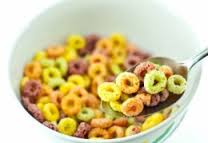There’s a new twisted cousin to GMO foods already making headway ininfiltrating the food system. Synthetic biology is the science of designing organisms in the laboratory that make things more efficiently than in nature. And, like their genetically engineered predecessors, the public has already been inducted into the huge science experiment. Why? Because chances are you may have already eaten them.
For example, Synbio vanillin, which has the right to carry the “natural” mark, marketed by International Flavors & Fragrances as an alternative to artificial vanilla flavor, is being secretly sold to food companies who are already using it in their packaged foods since the summer of 2014. Like its GMO cousins, no safety testing is required of this new food technology, because it has earned the GRAS designation of “generally recognized as safe.” The FDA’s approach to food safety is, “if it looks like a duck, and acts like a duck, it’s a duck,” even though it may have the genes of a fish, or, in the case of synbio foods, yeast. What’s more, many of the companies who buy the food products are not told that they are synthetic, and, unlike GMO foods, it is virtually impossible for the consumer to discover if they are in a processed food.
Most vitamins and amino acid supplements on the market are synthetic, and have been for some time. They have been criticized in some studies as being lacking in nutritional value and it is unknown how the body processes them, if it does at all.
One thing is for sure. As more and more people are born on the earth, chemical companies will be using the excuse of feeding them as a way to produce more new and bizarre “Frankenfoods.”
Kenneth Eade is a best-selling author and international lawyer; the author of An Involuntary Spy, a GMO Thriller.

